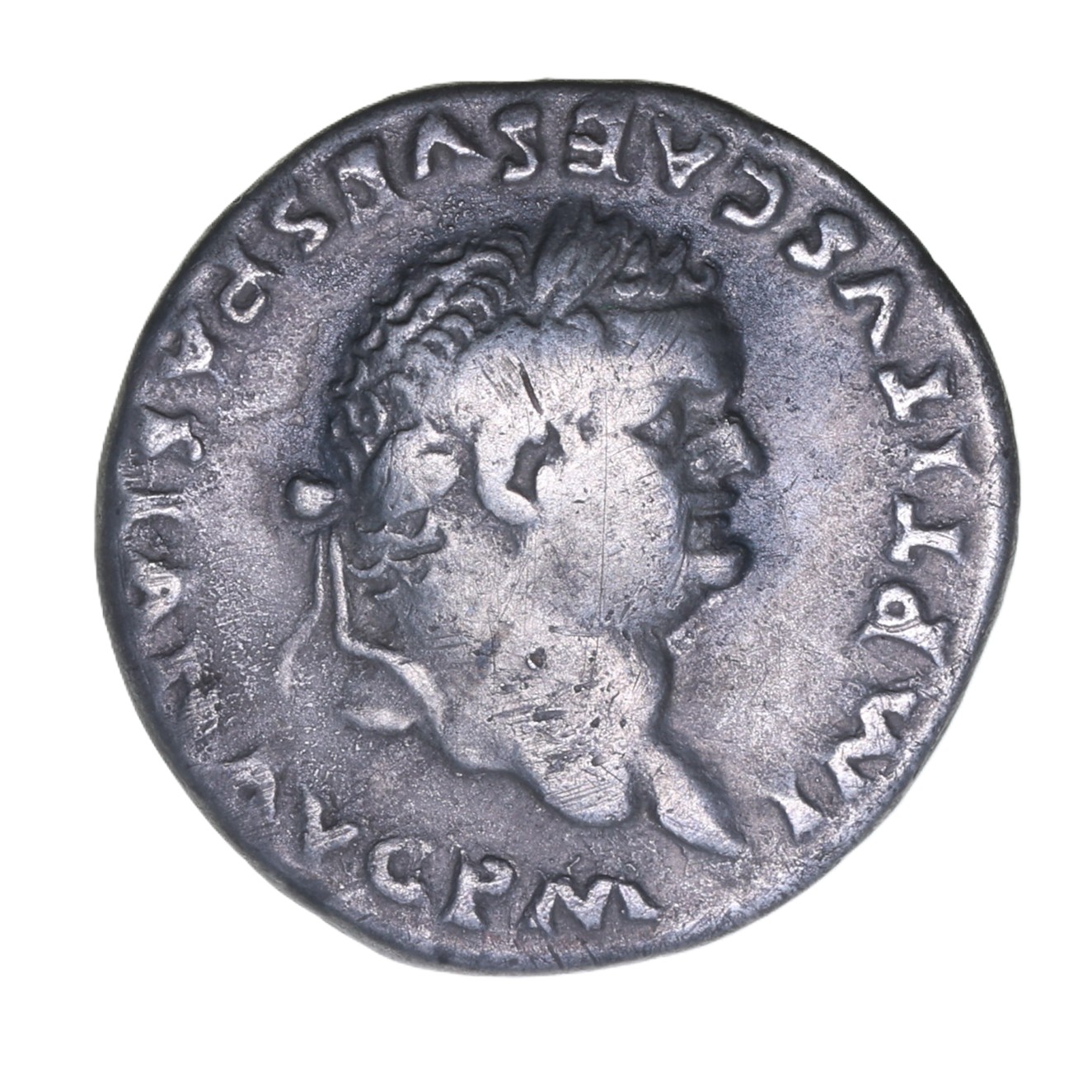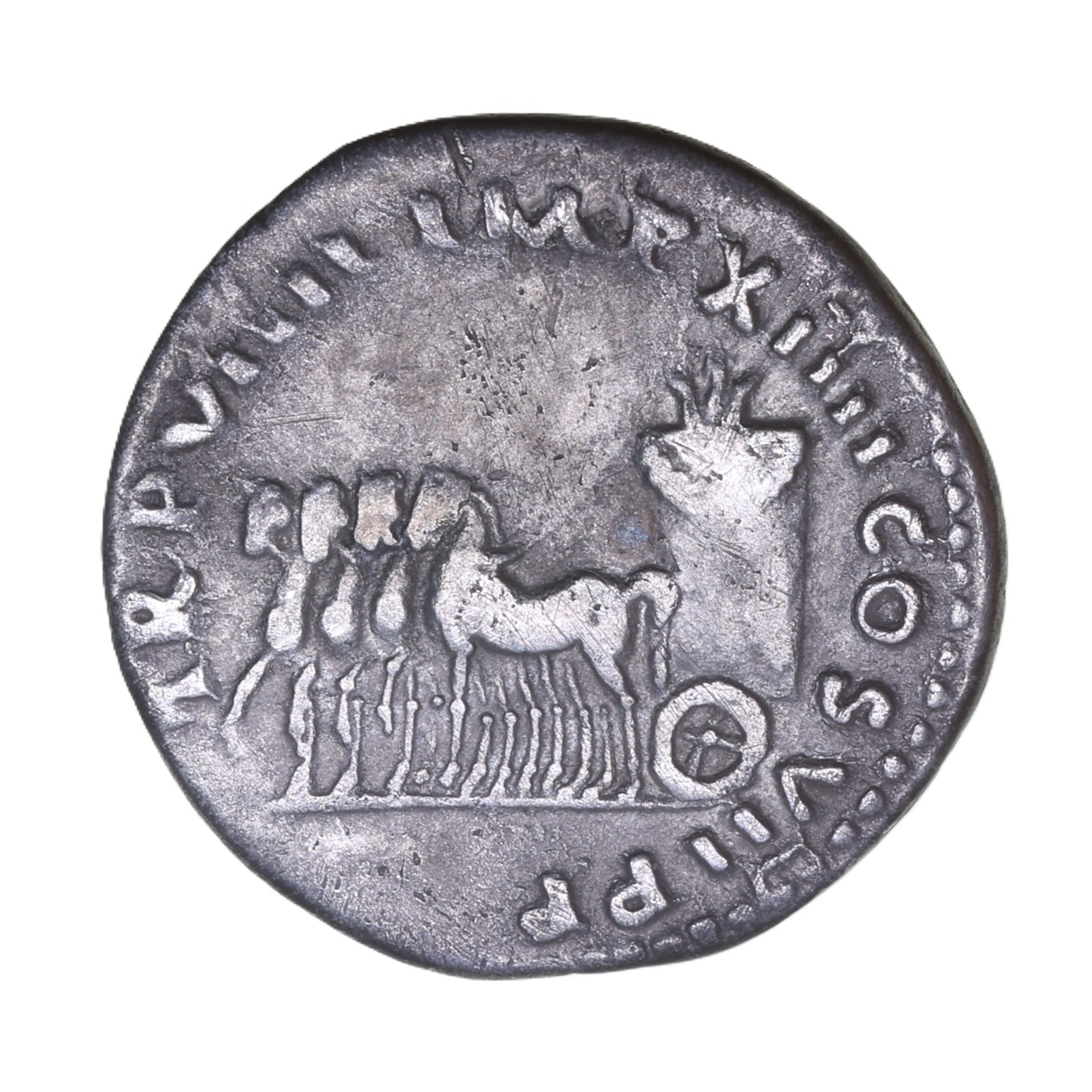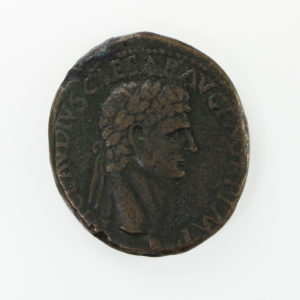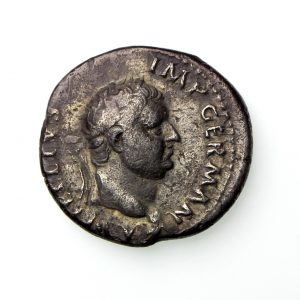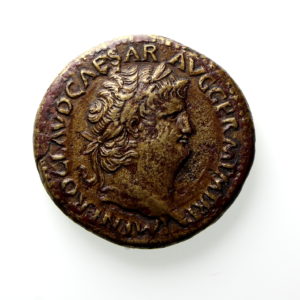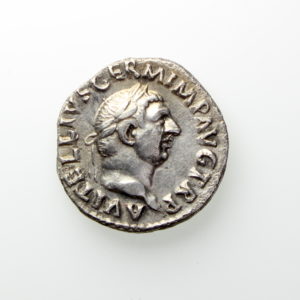Titus AD 79-81 Silver Denarius Rome * British Find*
£225.00
Titus AD 79-81 Silver Denarius
Triumphal quadriga
The Twelve Caesars
Rome mint
RCV2506; 18mm, 2.72g.
This coin was found in the vicinity of Beckfoot Roman Fort, Cumbria.
Classical References for Bibra
The sole classical geographical source for the Roman name of the Beckfoot fort is the Bribra entry in the Ravenna Cosmology (R&C#119), which appears between the list entries for Alauna (Maryport) and Maglona (Old Carlisle).
The Bibra Garrison
To date, only one inscribed stone has been uncovered from Roman Beckfoot, which fortunately provides the name of one of its garrison units; Cohors II Pannoniorum, a five-hundred strong infantry unit from the province of Pannonia, the region of the modern Czech Republic.
Titus
The elder son of Vespasian Titus was a close friend of Britannicus with whom he was educated. Serving as a military tribune in Britain, where is was present during the campaign against Boudicea, and Germany. In AD 67 he accompanied his father to Judaea as commander of Legion XV. When Vespasian returned to Rome in AD 69 to bid for emperor Titus assumed supreme command in the Jewish war. In AD 70 he captured Jerusalem and ended the Jewish revolt.
Returning to Rome Titus enjoyed a magnificent triumph with his father who was now emperor. Taken into government and made co emperor by Vespasian he was accorded a significant share of the imperial coinage before succeeding as emperor upon the death of Vespasian in AD 79.
Although Titus only ruled for 2 years his reign is probably best known for the destruction of Pompeii when Vesuvius erupted in AD 79. The country also suffered from plague and there was also a devastating fire in Rome which destroyed the imperial mint on Capitoline Hill. One of the highlights of his reign was the dedication of the Amphitheatrum Flavium better known as the Colosseum. This became one of Rome’s principal landmarks. Titus died aged only 42 in AD 81 and was succeeded by his younger brother Domitian.
Out of stock

